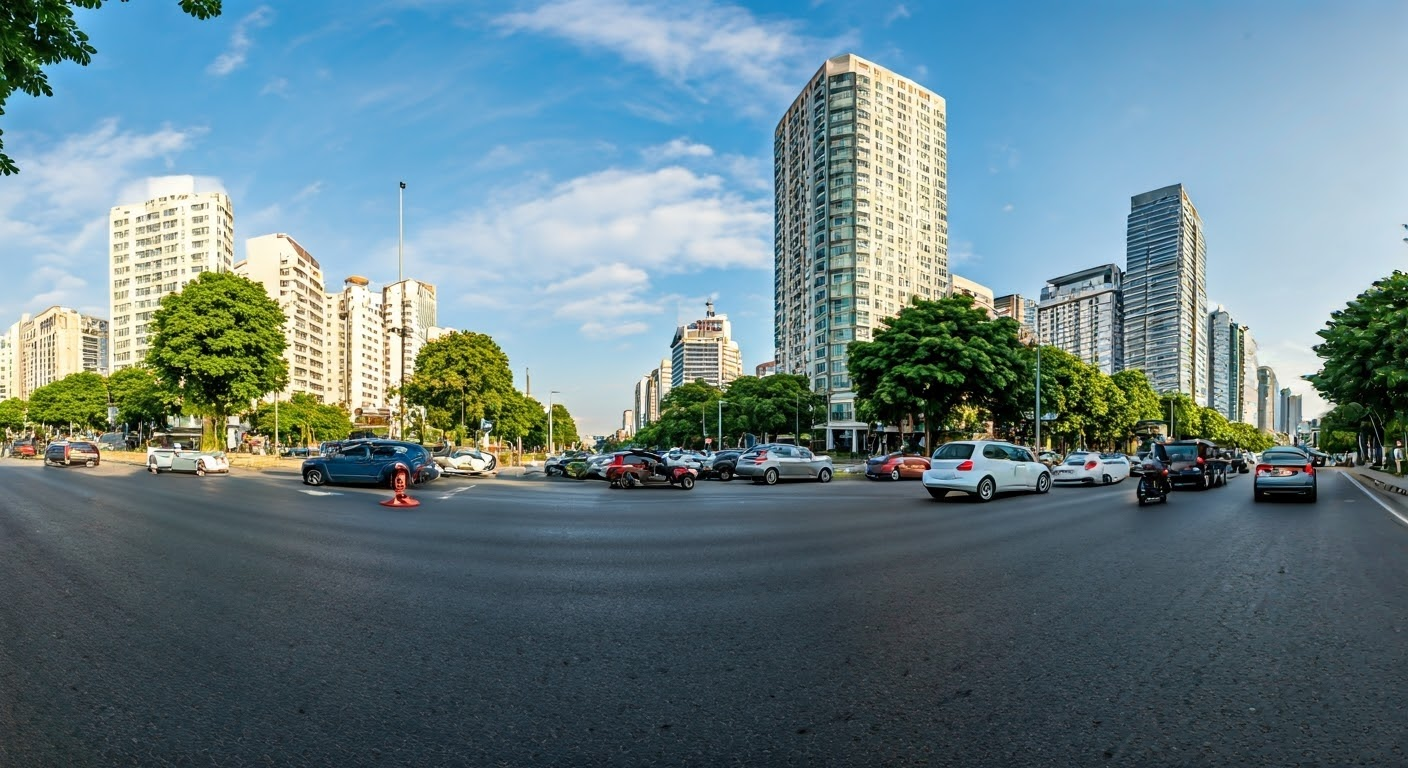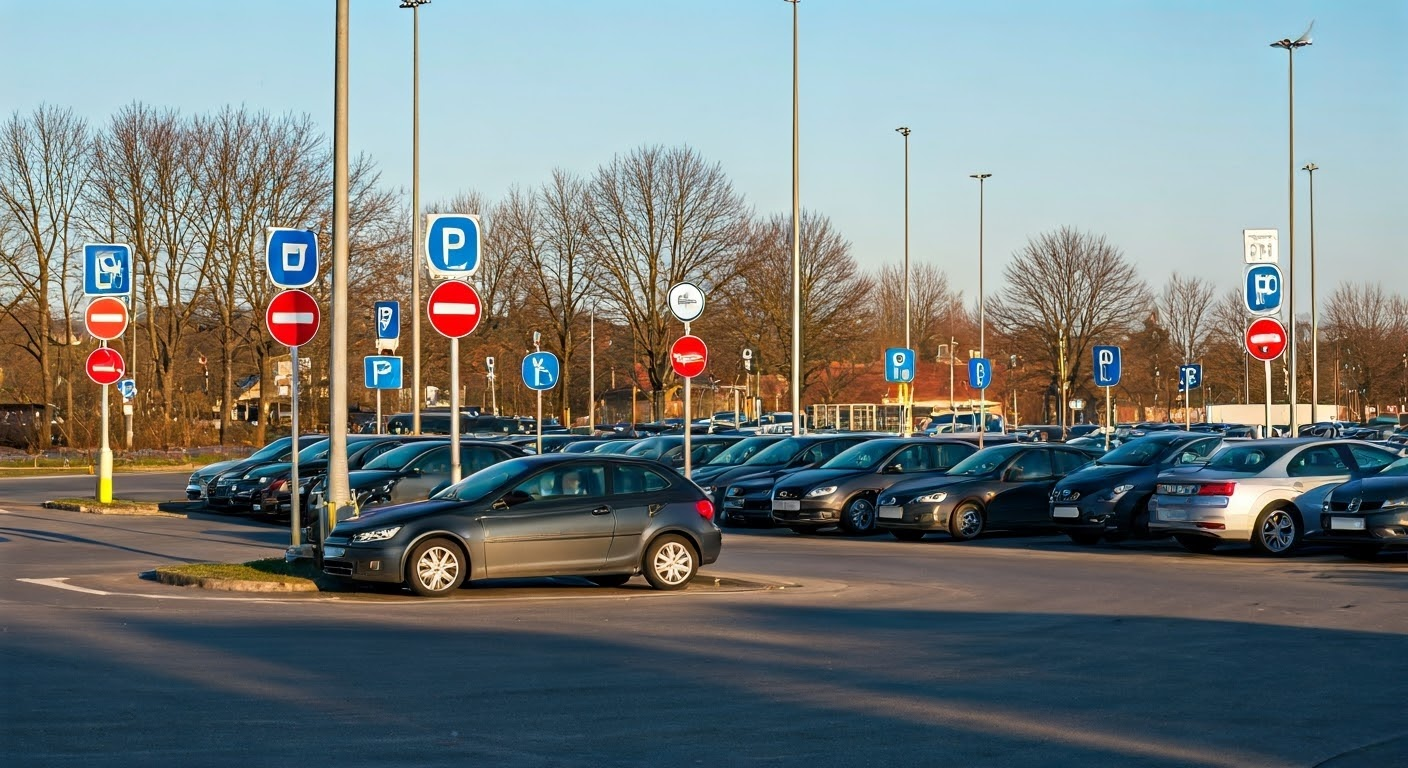Moving vs. Non-Moving Traffic Tickets: Here’s What You Need to Know

Key Highlights
- Washington State categorizes traffic violations as moving or non-moving, each with different implications for drivers.
- Moving violations, like speeding and reckless driving, occur while the vehicle is in motion, posing safety risks to others.
- Non-moving violations, such as parking infractions and expired registrations, typically involve stationary vehicles.
- Driving records and insurance premiums are heavily impacted by moving violations but are less affected by non-moving infractions.
- Consulting an experienced traffic ticket attorney can help mitigate consequences and provide clarity on handling infractions.
- Responding timely and understanding violation classifications is essential to avoid further penalties and legal complications.
Introduction
Traffic violations can affect your ability to drive and may cause your insurance rates to go up. In Washington State, there are two kinds of traffic violations. One is called moving violations, and the other is non-moving violations. If you break the rules while your car is moving, like getting a speeding ticket or running a red light, that is a moving violation. If you are dealing with things like expired registration or other paperwork while your car is not moving, that is a non-moving violation. Understanding the difference between these two helps you make better choices. It can also help when you want to deal with tickets or worry about what may happen if you break the law. Let’s look at the details a bit more.
1. Understanding Traffic Violations in Washington
 Traffic violations in Washington can be grouped into two main types with different rules and penalties. Moving violations happen when people drive in unsafe ways. These can be dangerous to other drivers and the road. Non-moving violations are usually for things like out-of-date vehicle registration or parking violations.
Traffic violations in Washington can be grouped into two main types with different rules and penalties. Moving violations happen when people drive in unsafe ways. These can be dangerous to other drivers and the road. Non-moving violations are usually for things like out-of-date vehicle registration or parking violations.
Knowing the difference between these violations is important. It can affect your driving record, the insurance premiums you pay, and what you might owe in fines. Be aware of whether you have a moving violation or a non-moving violation. This can help you deal with tickets in the right way and know when to fight one.
Definition of Moving Violations
Moving violations happen when a car moves in a way that breaks the law. These offenses often come from things people do while driving that are not safe or go against the rules. They put all people on the road at risk. Some examples of moving violations are getting a speeding ticket, reckless driving, or not stopping at a stop sign.
Speeding tickets are one of the most common types of moving violations. If you go over the posted speed limit, you can get a ticket, pay hefty fines, and your insurance rates may go up. Reckless driving, like making quick moves in and out of lanes or driving too close to someone, is also bad. This can lead to license suspension or other penalties.
Some moving violations are even more serious. If you are caught driving under the influence (DUI), the severe consequences can include jail time. These kinds of actions are seen as very risky. They could lead to crashes, harm, or worse. If you deal with moving violations quickly and in the right way, you can help keep your driving record clean and stop your insurance premiums from rising.
Definition of Non-Moving Violations
Unlike moving violations, non-moving violations usually happen when the car is not moving or are about paperwork. For example, parking violations, expired registration, and equipment violations are all in this group. These problems often show there was not enough care about the rules, but do not show dangerous driving.
Parking violations are the most common non-moving issue. This can mean parking too close to a fire hydrant or parking in a handicapped spot without the right permit. Tickets for expired registration come up a lot and often need you to get a new registration and pay a fine.
If you have equipment violations like a broken taillight or a missing mirror, you usually get a fix-it ticket. Drivers must fix the problem and show proof to the police. While non-moving violations can have smaller fines, they may still show up on your driving record. This is why it is important to take care of these infractions as soon as possible.
2. Impact of Moving Violations on Drivers
Moving violations in Washington State can cause big problems for drivers. These can put penalties on your driving record and also make your auto insurance rates higher. When you get a moving violation, points are added to your record. If too many points add up, it can even lead to a license suspension.
Also, insurance companies look at moving violations as a sign of unsafe driving. This makes your insurance rates go up. Knowing what can happen because of these violations helps you act in a good way to fix things. That way, you can lower the risk to your money and keep your driving privileges in Washington State.
Effects on Driving Record
Moving violations in Washington have a direct effect on your driving record. The state does not use the same points system as some others, but your violations do stay on your record for several years and can affect your right to drive.
If you get several offenses like reckless driving or running a red light, it can bring you severe consequences. These things can cause a license suspension. Getting many small tickets in a short time can also add up and make penalties worse. If you do not stop at traffic signals often, it shows a clear pattern of risky driving. That will likely lead to stricter legal actions.
Breaking the law in a serious way, like with a DUI, will often mean losing your license altogether. Even if you do not lose your license right away, those violations will stay on your record for a long time. This can make it hard when you want to get new insurance or rent a car. You might see your insurance rates go up. It is important to deal with moving violations the right way and fast, so you do not have bigger problems later.
Consequences for Insurance Rates
Your insurance premiums can go up a lot because of moving violations. Auto insurers will look at your traffic record to see how much risk you may be to them. If you get a single speeding ticket, your insurance rates can rise fast. In some cases, it can go up by 25% or more.
If you get caught for reckless driving or driving under the influence, these are serious problems. These things tell your insurer that you may get into an accident, so your insurance premiums will most likely increase. If you get a single speeding ticket or you get caught for other violations again and again, the company may stop offering good prices to you.
Usually, non-moving violations won’t change your insurance premiums. But moving violations show a pattern of risky habits when you are behind the wheel. This pattern can end up costing you more in the long run. Your insurer checks your record every time your policy is about to renew. To keep your costs down, you should drive safer and, if need be, talk to a traffic attorney. This can help you lower your rates and deal with problems before they get bigger.
3. Consequences of Non-Moving Violations
 Non-moving violations are often treated mildly, but they can still affect your driving record and money. Usually, you get a fine for things like parking violations or if your vehicle registration is expired.
Non-moving violations are often treated mildly, but they can still affect your driving record and money. Usually, you get a fine for things like parking violations or if your vehicle registration is expired.
Sometimes, these problems can lead to bigger issues over time. For example, if you do not pay your fines, you might not be able to renew your car registration. It could also hurt your credit. Non-moving violations do not usually make your insurance rates go up, but it’s best to pay them soon. This way, you can avoid problems in the future.
Typical Penalties and Fines
Non-moving violations usually come with smaller fines than moving ones. When you get parking tickets, you may only need to pay for things like staying too long at a meter or not parking the right way.
Some rules, like those about expired car registrations, need to be fixed right away. If you don’t, it can lead to more trouble later, like late fees or calls from collections. This could hurt your credit. Equipment violations, like broken taillights, often cause fix-it tickets. You need to get the problem fixed to avoid getting another fine.
While these fines and tickets might seem small, waiting to pay or fix them can make things worse. Taking care of non-moving violations on time will help you avoid bigger problems when you renew your registration. Always make sure to follow the rules to keep things simple for you.
These steps are important when it comes to equipment violations, parking tickets, and all those smaller fines.
Long-term Implications on Driving History
Non-moving violations might not seem serious at first, but they can still show up on your driving record in Washington. For example, if you have an expired registration, this type of administrative infraction will stay on your driving record for up to three years.
If you collect these minor issues over time, you probably will not lose your license. But there can still be problems. For example, if you do not pay fines on time or you do not renew your registration when needed, a collections agency might step in. This can make it tough to renew your vehicle, and it might even impact your credit rating.
Non-moving violations do not come with demerit points like moving violations do. Still, if you rack up too many fines or ignore things like broken headlights, your future paperwork could get held up. Taking care of non-moving violations quickly will help keep your driving record clear and make things much easier in the long run.
4. Legal Guidance for Traffic Tickets
Dealing with traffic tickets can be hard to do on your own. It is a good idea to get help from people who work in law. Traffic attorneys know the ins and outs of both moving and non-moving violations. They help you know what these tickets could mean for you.
If you want to fight a penalty or try to get the punishment lowered, it is important to talk to experts. They help make sure that you answer in the right way and at the right time. When you listen to their advice, you keep your driving record safe. You also lower your chances of paying higher insurance rates. They can help you look at good legal choices for your own problem.
When to Consult a Traffic Attorney
Knowing when you need a traffic ticket attorney can help you deal with traffic violations in a better way. If your traffic ticket puts you at risk of a license suspension or if there are strict penalties, it is smart to get advice from someone who knows the law.
Handling things like mistakes in moving violations, such as questions about the speed radar, may need special help. Talking to a lawyer who works with traffic violations makes it easier to defend yourself and may help lower costs or punishments. For example, many offer a free meeting to talk about the best steps for your case.
Small problems like non-moving tickets do not always need a lawyer. But if you face big problems, such as getting in trouble for parking violations or late registration, then a traffic ticket attorney can really help. Looking at your legal choices gives you more answers and can make hard cases easier to settle when the rules are not flexible.
Benefits of Professional Legal Assistance
Dealing with traffic violations can be hard and confusing. This is why it helps to talk to an experienced traffic ticket attorney. The right attorney can help you build a strong defense if you have a moving violation or traffic ticket. They work to lower the risk of getting hefty fines, increased insurance premiums, or even a license suspension.
These attorneys know what technical issues to look for in every case. By spotting these problems, they can help reduce the effects of traffic violations. Most of the time, a traffic ticket attorney will give you a free consultation. This lets you know what your options are and what steps you can take next.
5. Conclusion
Knowing the difference between moving and non-moving traffic tickets is important for every driver. Moving violations often come with harsher penalties. These can really hurt your driving record. They may also make your auto insurance rates and insurance premiums go up a lot. On the other hand, non-moving offenses are still serious, but they often lead to smaller fines and less severe consequences.
If you get a traffic ticket, it can help to talk to an experienced traffic ticket attorney. A good traffic ticket attorney knows how to handle these problems. They can help you avoid big hits to your driving record or big jumps in your insurance rates and insurance premiums. This also makes sure you stay in line with traffic laws and keeps our roads safer for all of us.
Frequently Asked Questions
Can non-moving violations affect my car insurance?
Yes, non-moving violations can affect your car insurance rates. The insurance companies may see these things as signs that you are more likely to take risks. This can make your car insurance more costly. It’s good to know how they look at these violations. By understanding this, you can manage your insurance costs better.
What are some examples of non-moving violations?
Non-moving violations are things like illegal parking, expired registration, or not showing a valid inspection sticker. These usually happen when the vehicle is not moving. The police may give you a fine for these. But, they normally do not affect your driving record or your insurance rates.
How can I contest a moving violation ticket in Washington?
If you want to fight a moving violation ticket in Washington, you need to collect proof. This can be things like photos or what people saw. After that, file a notice of appeal on time. Then, go to your court hearing, and show your side of the story. Make sure to be respectful and be ready for any questions the court may ask about the moving violation.
Are there any exceptions where a non-moving violation can impact driving records?
Yes, some non-moving violations, like a DUI or a reckless driving charge, can show up on your driving record. Also, in some states, you may get points for a non-moving violation, especially if it is about safety. It is important to know the local laws about these types of rules.
What steps should I take immediately after receiving a moving violation ticket?
When you get a moving violation ticket, look at the ticket right away. Check all the details and see what you need to do. You have a choice to pay it or fight it. Make sure you know the deadline for each step. If you plan to fight the moving violation ticket, start collecting anything that helps your case. You might want to talk to a lawyer about what to do next. This can help you handle the ticket in the best way. Do not wait too long. Deal with it now to avoid more trouble later. Get a Free Consultation now and get a clear path forward – (425) 264-2000
Call Now or USE contact form a for same-day response:









Thanks to their expertise, the fines were successfully dismissed, and I felt fully supported throughout the process. I highly recommend this attorney to anyone looking for reliable, knowledgeable, and truly dedicated legal help.

